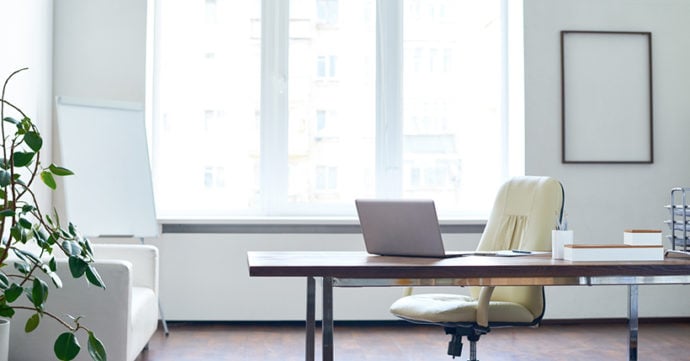As you may already know, the stronghold that traditional office spaces have had on the market is being challenged by the emergence of co-working spaces. Unless you live in a rural community, you probably have a WeWork, Regis, or independently-owned co-working office space within a few miles from your home. Times are changing, and much of the change in the professional world is being driven by a shift in needs, expectations, and values as millennials take control of the labor market.
Why Is the Office Space Under Threat?
There’s no single answer to this question, but it has a lot to do with the fact that changes in modern society have created more choice with regard to where and how we work. Simply put, the traditional working model is looking more like a dinosaur and here are some reasons why:
- Workers want more scheduling flexibility. In fact, only 10% of workers surveyed think pay is more important than having some autonomy over their work schedule.
- We’re in an age of entrepreneurship. Workers in their 20s and 30s want to create a start-up or roll the dice and work for one.
- People like free stuff, and co-working spaces typically offer coffee, snacks, and more importantly, fast internet.
- It’s a warmer environment where individuals feel more comfortable socializing.
While this doesn’t mean that traditional office spaces are in danger of going extinct, it does illustrate how owners and investors in the office sector need to change their business model in order to maintain control over the market.
How the Traditional Office Industry Can Compete
Keeping up with workplace culture and going along with the changes in the market are the best ways to maintain control in a market shared by co-working spaces. Many companies that specialize in office spaces have modified their business models by providing some of the following amenities:
- Game rooms and common areas
- Open floor plans over cubicles
- Free snacks and coffee
It’s important to remember that we live in an age where the experience is just as important as the outcome. In the same way that consumers like experiential retail, modern workers are looking for experiences to improve their work routine. Activity rooms, flexible schedules, and group activities are just some of the ways that traditional office companies have been able to maintain their control in the market.
In a more radical approach, some companies have even turned to alcohol to attract employees. Whether you support alcohol at work or not, one fact still remains: the office industry can and will weather the co-working storm, but it’ll require creativity and outside-the-box thinking.
The Final Word
The best way for key players in the office sector to retain their market share is by not resisting change. People like choices and co-working spaces provide a viable alternative to the traditional way people go to work, which is part of the reason why co-working spaces have become increasingly popular.
Many investors and developers have caught onto the popularity of co-working and have subsequently expanded into the co-working industry. After all, it doesn’t look as if co-working spaces are going anywhere in the near future.






